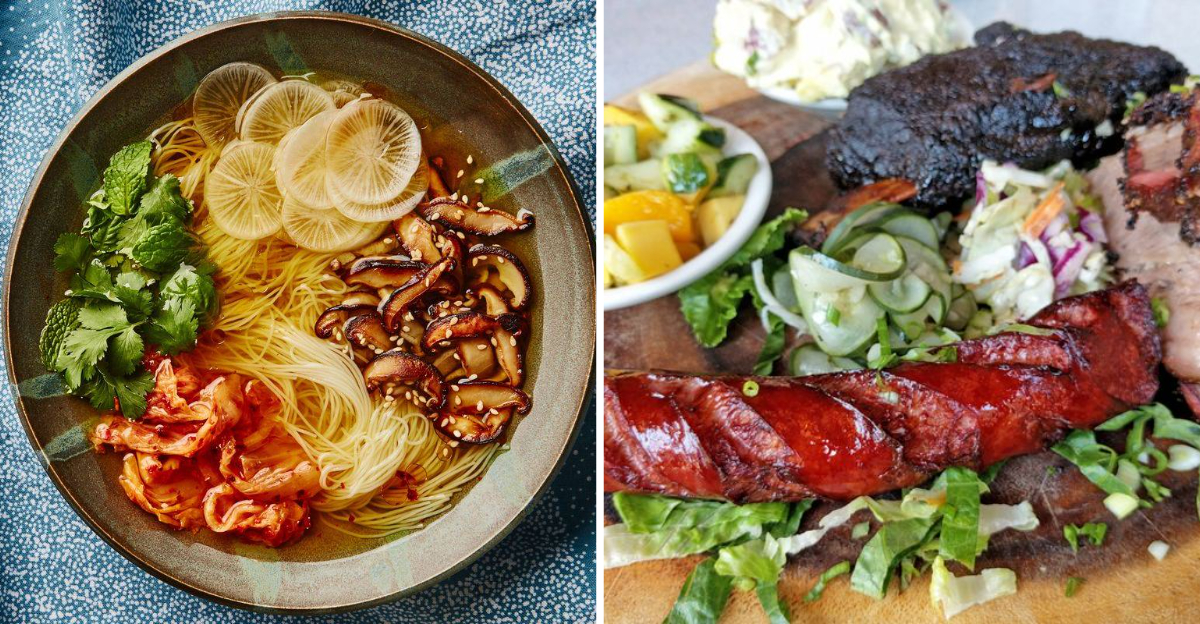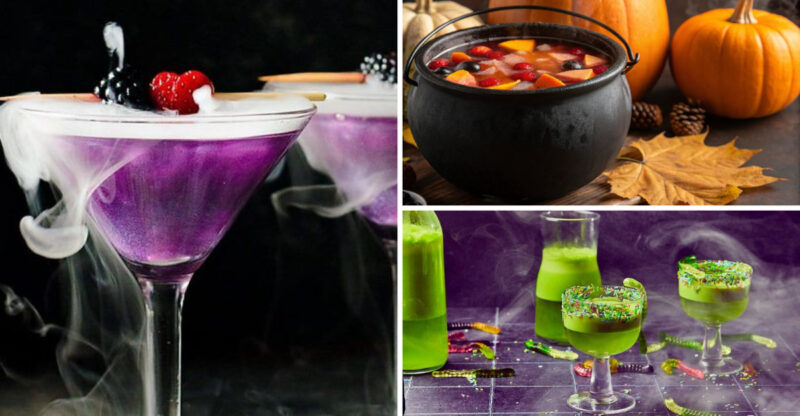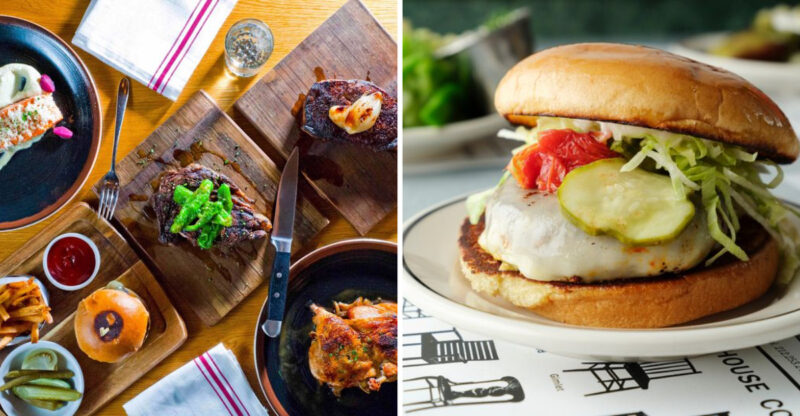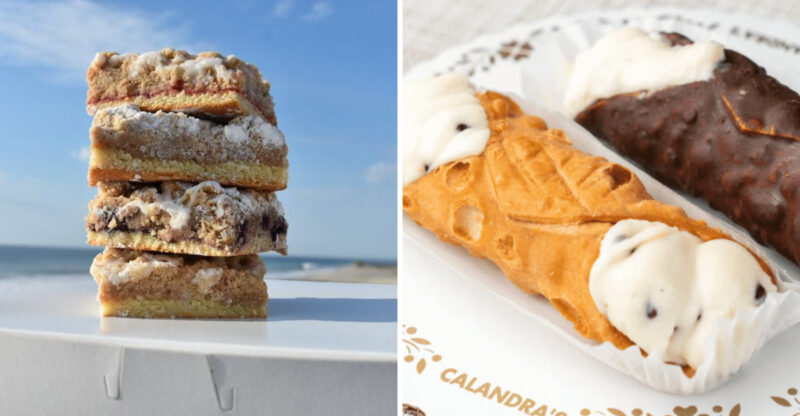Washington Dining Spots That Couldn’t Survive the Summer Rush Of 2025

When summer 2025 rolled around, Washington’s restaurant scene faced unexpected challenges that left many beloved spots struggling to keep their doors open.
Rising costs, staffing shortages, and changing customer habits created a perfect storm that proved too much for even some long-standing favorites.
I’m sharing this list to remember these dining destinations and help you understand what happened to places you might have loved visiting with your family and friends.
1. The Harbor Grill & Oyster Bar
If you ever visited Seattle’s waterfront, you probably walked past this iconic seafood spot at least once. The Harbor Grill had been serving fresh oysters and grilled salmon for over thirty years before closing its doors in July 2025. Rising seafood costs combined with tourist numbers that never quite recovered made it impossible to continue.
Families loved bringing their kids here to watch boats while enjoying clam chowder. The owners tried adjusting their menu prices, but customers started choosing cheaper options elsewhere.
It’s sad knowing future visitors won’t experience those sunset dinners overlooking Elliott Bay that made this place so memorable to locals and tourists alike.
2. Bella’s Italian Kitchen
How does a restaurant that’s been making homemade pasta since 1998 suddenly disappear? Bella’s in Spokane faced that exact reality when summer crowds didn’t materialize as expected. The family-run establishment had always relied on steady foot traffic from downtown shoppers and office workers.
When remote work became permanent for many companies, lunchtime business dried up significantly. The owners, Maria and Tony Russo, tried hosting special dinner events and offering takeout specials.
Unfortunately, ingredient costs tripled while customer visits dropped by half. Their famous lasagna recipe will be missed by everyone who considered Bella’s their go-to spot for authentic Italian comfort food.
3. Mountain View Breakfast House
Are you someone who loves starting your day with fluffy pancakes and mountain scenery? This Leavenworth breakfast spot offered exactly that combination for twenty-two years. Mountain View Breakfast House closed in June 2025 after struggling to find enough kitchen staff willing to work early morning shifts.
The owner, Janet Miller, age 58, explained that young workers preferred flexible schedules rather than the 5 AM start times required for breakfast service. She tried raising wages but couldn’t compete with larger chain restaurants offering benefits.
Tourists still wanted those famous huckleberry pancakes, but without cooks to prepare them, keeping the doors open became impossible for this beloved mountain community gathering spot.
4. Taco Tiempo
It’s heartbreaking when your favorite taco spot closes, especially one that served the community for fifteen years. Taco Tiempo in Tacoma was known for authentic street tacos and homemade salsa that locals craved weekly. The restaurant shut down in August 2025 after rent increased by forty percent.
Owner Carlos Mendoza tried negotiating with his landlord but couldn’t reach an agreement that made financial sense. His customer base remained loyal, but profit margins were already thin in the competitive taco market.
Even selling out every weekend wasn’t enough to cover the new lease terms. I’ll always remember their carne asada tacos and the welcoming atmosphere that made everyone feel like family.
5. The Green Leaf Café
Did you know that even trendy vegan restaurants struggled during summer 2025? The Green Leaf Café in Seattle’s Capitol Hill neighborhood was a pioneer in plant-based dining since 2019. Their creative Buddha bowls and cashew-based desserts attracted health-conscious diners from across the city.
However, specialty ingredients for vegan cooking became incredibly expensive as supply chains faced continued disruptions. The café’s owner, Emma Chen, age 34, watched her food costs jump while customer spending decreased.
She tried simplifying the menu and sourcing local produce, but the numbers just didn’t work anymore. This closure represents how difficult the restaurant industry became, even for businesses with passionate followings and innovative concepts that seemed destined for success.
6. Riverside BBQ Pit
When you think about perfect summer dining, barbecue by the river probably comes to mind. Riverside BBQ Pit in Wenatchee offered exactly that experience for eighteen years before closing in July 2025. The restaurant specialized in slow-smoked ribs and pulled pork that took twelve hours to prepare properly.
Owner Mike Thompson couldn’t find reliable pit masters willing to work the long, hot hours required for authentic barbecue. He trained several employees, but they left for easier jobs with better hours. The propane costs for running smokers constantly also became unsustainable.
Regular customers tried supporting the business, but operating a quality barbecue restaurant requires specific skills and dedication that became increasingly difficult to maintain in today’s challenging labor market.
7. The Daily Grind Coffee House
Though coffee shops seemed recession-proof, The Daily Grind in Olympia proved otherwise when it closed in May 2025. This independent café had been a student favorite near Evergreen State College for twelve years. Owner Sarah Kim, age 41, built a loyal following by hosting open mic nights and displaying local artists’ work.
Unfortunately, competition from corporate coffee chains offering loyalty programs and mobile ordering made it tough for small operators. Wholesale coffee bean prices also increased dramatically while students became more budget-conscious.
Sarah tried adding food items and extending hours, but operational costs kept climbing. The community lost more than just a coffee shop they lost a creative gathering space where friendships formed over lattes and meaningful conversations happened daily.
8. Sushi Harmony
If fresh sushi was your weakness, you probably visited this Bellevue establishment at least once. Sushi Harmony operated for fourteen years, earning a reputation for incredibly fresh fish and skilled sushi chefs. The restaurant closed in June 2025 after fish suppliers raised prices to levels that made profit nearly impossible.
Owner Ken Yamamoto explained that quality tuna and salmon costs doubled within six months. He refused to compromise on freshness or quality, which meant either raising menu prices significantly or accepting losses. Customers loved the restaurant but weren’t willing to pay premium prices during economically uncertain times.
His head sushi chef, trained in Tokyo for ten years, moved to California seeking better opportunities, making the decision to close even clearer.
9. The Cozy Corner Diner
Are classic diners disappearing from your neighborhood too? The Cozy Corner in Vancouver, Washington, served comfort food like meatloaf and milkshakes for twenty-five years. This family-owned spot closed in August 2025, breaking the hearts of regulars who gathered there for breakfast every Saturday morning.
The diner’s owner, Robert Jensen, age 62, planned to retire eventually but hoped to sell the business first. When potential buyers saw the aging equipment and expensive necessary renovations, nobody made reasonable offers. Maintaining the retro atmosphere customers loved required constant upkeep that became financially draining.
The building’s landlord wanted to redevelop the property anyway. I’ll miss those perfectly crispy hash browns and the friendly waitresses who remembered everyone’s usual orders without writing anything down.
10. Spice Route Indian Cuisine
How many times did you order that delicious chicken tikka masala for delivery? Spice Route in Redmond served authentic Indian dishes for nine years before closing in July 2025. The restaurant struggled as delivery app fees ate into already slim profit margins.
Owner Priya Sharma watched as third-party delivery services took up to thirty percent of each order while customers expected the same prices as dining in. She tried offering direct ordering through her website, but most people preferred the convenience of popular apps. Specialized spices and ingredients imported from India also became more expensive and harder to source reliably.
The lunch buffet that once attracted tech workers never recovered after companies adopted permanent remote work policies. This closure highlights how delivery apps changed the restaurant business model in ways that hurt independent operators.
11. The Burger Barn
It’s tough watching a place that’s been around since your childhood suddenly vanish. The Burger Barn in Yakima had been flipping burgers since 1995, making it a local institution. Families celebrated birthdays there, and high school students hung out after football games for thirty years.
When beef prices skyrocketed in early 2025, owner Linda Martinez faced impossible choices. She could raise prices and lose customers or maintain prices and lose money on every burger sold. Competition from fast-food chains with corporate buying power made it worse.
Linda tried introducing chicken sandwiches and veggie burgers, but loyal customers wanted the classic burgers they’d always loved. The restaurant closed in June 2025, ending three decades of memories and taking away a gathering place that multiple generations cherished.
12. Harborside Fish & Chips
When summer tourists arrived in Bremerton, they traditionally headed straight to Harborside for crispy fish and chips. This waterfront favorite operated for nineteen years before closing in August 2025. The owners, Dave and Susan Porter, both age 56, couldn’t keep up with changing health regulations and expensive equipment upgrades.
New ventilation systems and fire suppression requirements would have cost over eighty thousand dollars to install. Their aging fryers also needed replacement, adding another significant expense. Tourist numbers were down compared to pre-pandemic levels anyway, making such large investments risky.
The Porters decided to close rather than take on debt they might never recover. Their secret beer batter recipe dies with the restaurant, leaving locals wondering if anyone will ever match those perfectly golden fillets.
13. Mama Rosa’s Pizza Parlor
If you grew up in Bellingham, you probably have memories of birthday parties at Mama Rosa’s. This pizza parlor served the community for twenty-eight years before closing in May 2025. The restaurant was famous for thin-crust pizzas baked in a brick oven imported from Italy decades ago.
Owner Rosa Benedetti, age 67, wanted to retire but couldn’t find anyone to continue her legacy. Her children pursued different careers, and training someone in traditional pizza-making takes years of dedication. Cheese and flour costs also increased dramatically while delivery services cut into dine-in customers.
Rosa’s arthritis made the physical demands of pizza-making increasingly painful. She closed with mixed emotions, grateful for nearly three decades but sad that her recipes and techniques won’t be passed forward to future pizza lovers.
14. The Pancake Palace
Are you the type who orders pancakes for dinner sometimes? The Pancake Palace in Richland understood that craving perfectly, serving breakfast all day for sixteen years. This spot closed in July 2025 after egg prices reached unprecedented levels that made breakfast-focused menus financially unsustainable.
Owner Gary Sullivan watched his weekly egg costs triple within months while customers resisted paying more for their favorite meals. He tried featuring lunch items and dinner specials, but people came specifically for breakfast foods. The restaurant’s identity centered on pancakes, waffles, and omelets all egg-dependent dishes.
Without affordable eggs, maintaining quality and reasonable prices became impossible. Gary’s famous buttermilk pancake recipe, perfected over sixteen years, won’t be flipped on the griddle anymore, disappointing families who considered Sunday breakfast there a cherished weekly tradition.
15. The Noodle Bowl
How often did you grab a quick bowl of ramen on your lunch break? The Noodle Bowl in Federal Way specialized in various Asian noodle dishes from pho to pad thai. This fast-casual spot operated for seven years before closing in June 2025 due to overwhelming competition and rising costs.
Owner James Park watched as multiple ramen chains opened within walking distance, all backed by corporate funding he couldn’t match. His rent increased while customer traffic got divided among more options. Importing authentic ingredients from Asia became expensive and unreliable. James tried differentiating with unique fusion bowls, but customers wanted traditional dishes at competitive prices.
The restaurant couldn’t sustain itself when competing against well-funded chains offering loyalty programs and slick marketing campaigns that independent operators simply cannot afford to match consistently.
16. Sunset Grill & Bar
It’s amazing how quickly a popular hangout can struggle when circumstances change. Sunset Grill & Bar in Everett was the place locals met for happy hour and weekend dinners for thirteen years. The restaurant closed in August 2025 after losing its liquor license due to administrative issues and renewal complications.
Owner Michelle Torres fought to resolve the licensing problems but faced bureaucratic delays that stretched for months. Without alcohol sales, the restaurant lost forty percent of its revenue almost immediately. Regular customers stopped coming for happy hour, and profit margins on food alone couldn’t cover operating expenses.
Michelle tried pivoting to a family-friendly concept, but the damage was already done. The sunset views from the patio remain beautiful, but nobody’s there anymore to enjoy them over dinner and drinks with friends after a long workweek.





